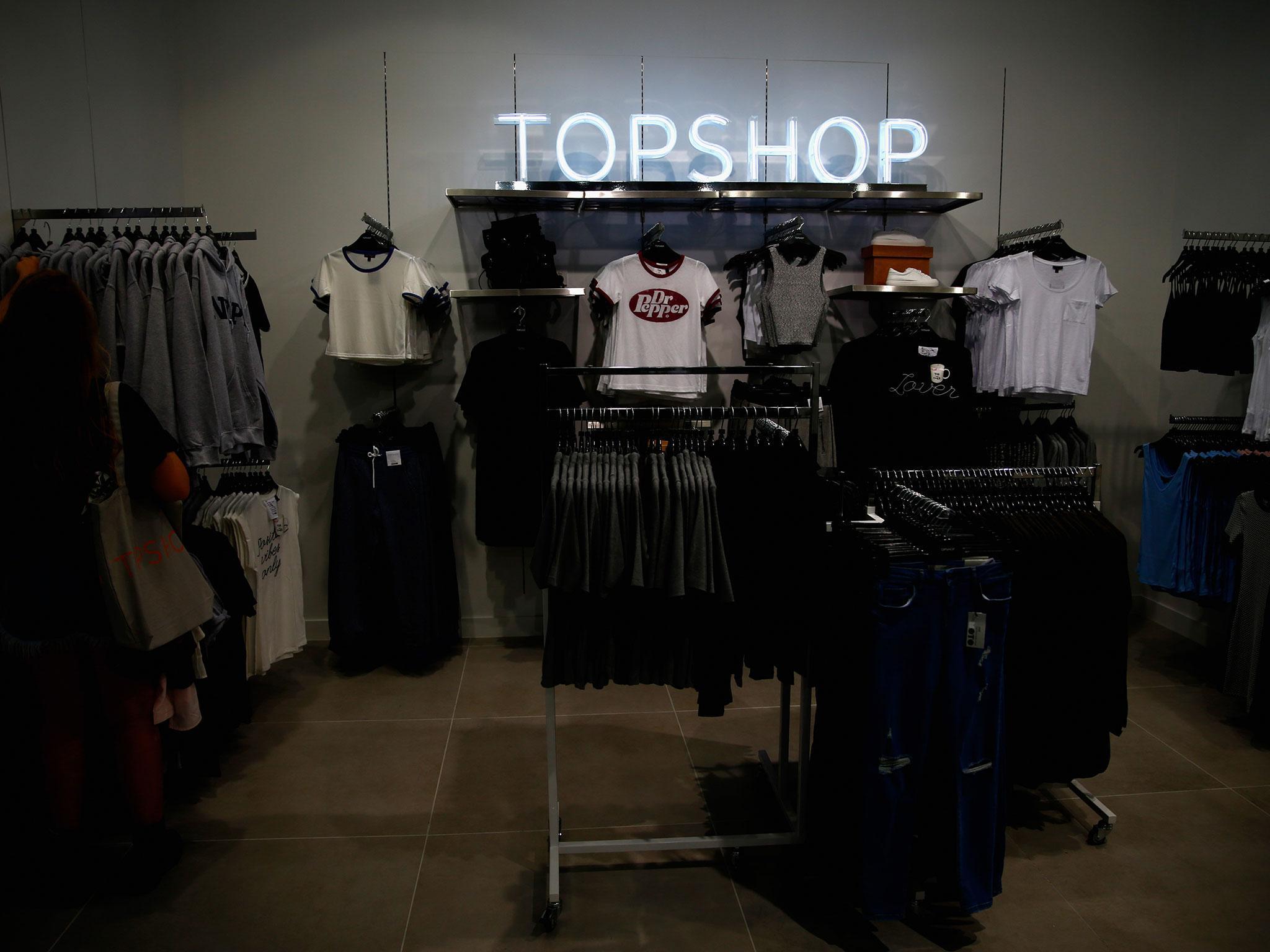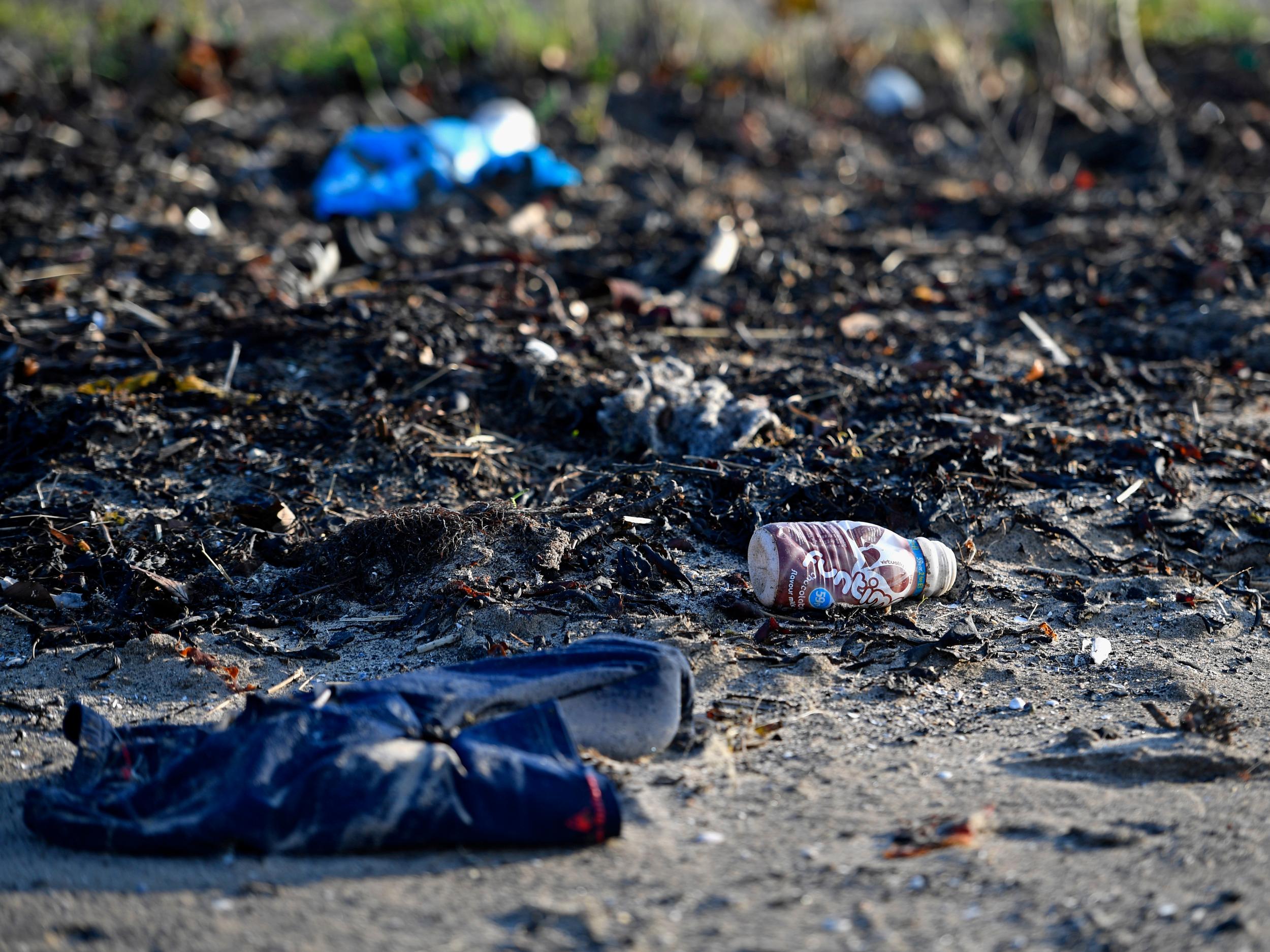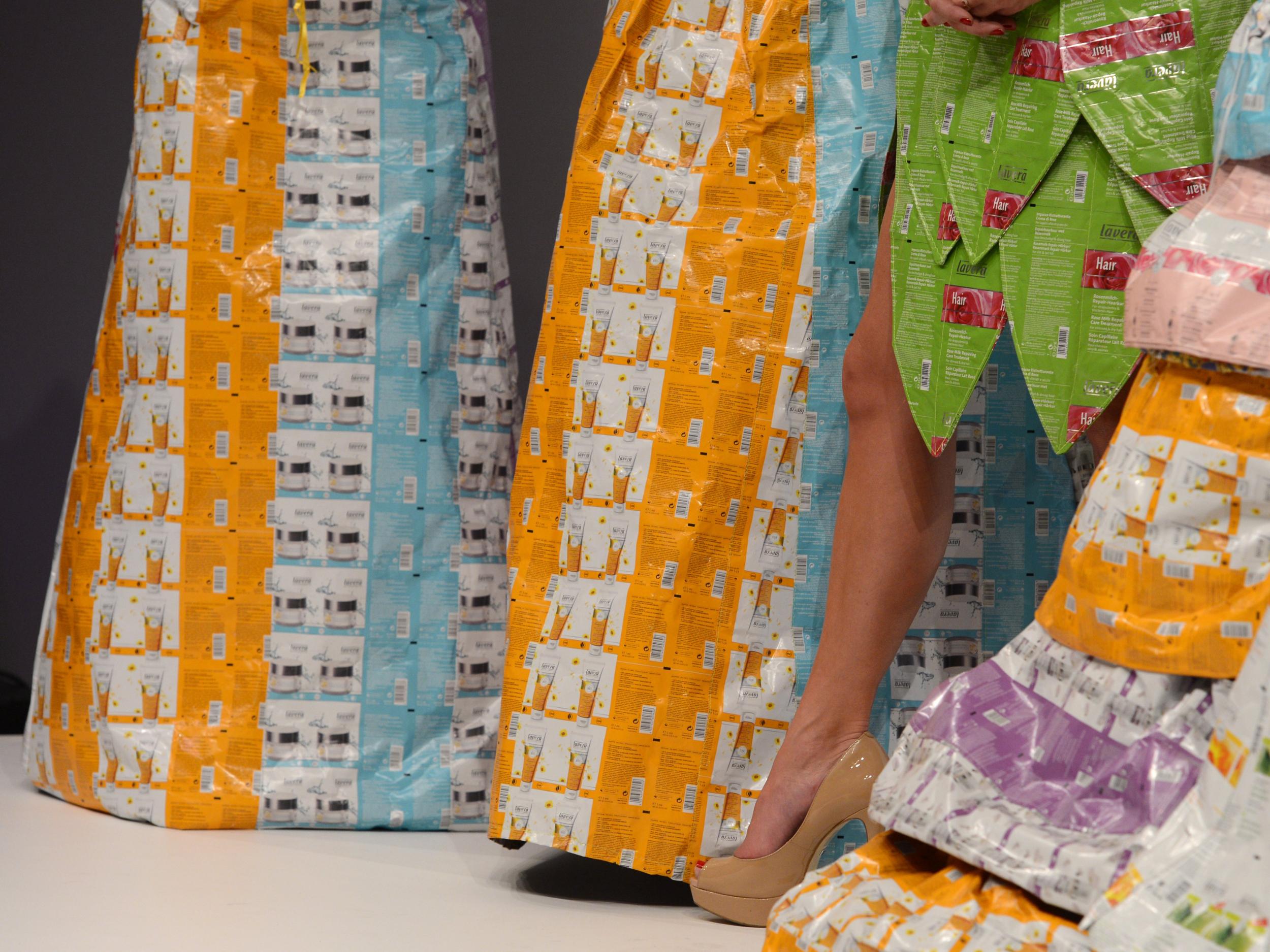It may not be possible to slow down fast fashion – so can the industry ever be sustainable?
Our behaviour is far more selfish than we might like to believe

Your support helps us to tell the story
From reproductive rights to climate change to Big Tech, The Independent is on the ground when the story is developing. Whether it's investigating the financials of Elon Musk's pro-Trump PAC or producing our latest documentary, 'The A Word', which shines a light on the American women fighting for reproductive rights, we know how important it is to parse out the facts from the messaging.
At such a critical moment in US history, we need reporters on the ground. Your donation allows us to keep sending journalists to speak to both sides of the story.
The Independent is trusted by Americans across the entire political spectrum. And unlike many other quality news outlets, we choose not to lock Americans out of our reporting and analysis with paywalls. We believe quality journalism should be available to everyone, paid for by those who can afford it.
Your support makes all the difference.The world of fashion has some major sustainability problems. By 2030, it is predicted that the industry’s water consumption will grow by 50 per cent to 118 billion cubic metres, its carbon footprint will increase to 2,791 tonnes and the amount of waste it creates will hit 148 tonnes.
These predictions are in spite of significant progress being made by brands and retailers to minimise their impact. Many are using sustainable cotton initiatives to reduce water, energy and chemical use, as well as new dyeing technology to reduce water consumption by up to 50 per cent. Numerous energy and chemical-saving schemes are being applied throughout the supply chain. In the UK, the result of this work is percolating through to stores, with a reduction in the carbon and water footprints per tonne of clothing amounting to 8 per cent and 7 per cent respectively since 2012.
So the industry is reducing the environmental footprint of its products. But the problem has now shifted to the consumption side: the insatiable appetite for fashion means people are buying more and more clothes. Since 2012, there has been a 10 per cent increase in the amount of clothing purchased in the UK alone. And not only are British consumers buying more, their clothing gets discarded quicker as they chase the latest fashion trends. It is estimated there is more than £30bn of clothing sitting in wardrobes across the UK that haven’t been used for over 12 months.

Fast fashion is seen by many as the fundamental cause of all the sustainability issues the industry faces. And so it has been suggested by numerous commentators, academics and NGOs that ethical consumerism can and will lead to a paradigm shift in behaviour. Over time, it is thought, slow fashion will become the norm, with consumers wearing classically styled garments that last for 10 years. This, so they say, will minimise the need to make new purchases of the latest fashion fad, therefore reducing impacts. The logic of this argument is predicated on the idea that consumers are rational animals with behaviour that is controlled and predictable.
But the growth of ethical consumerism has not materialised in mainstream fashion. Ethically-minded brands believe the single biggest issue stopping them becoming more sustainable is the consumer, either through their lack of awareness of the issues faced by the industry or through an unwillingness to pay for sustainable products.
So can ethical consumerism really exist in the mainstream fashion market? Psychology and behavioural science may suggest that ethical fashion consumerism is a pipe dream. We believe our purchasing decisions are based on rational, conscious and well-thought-out deliberations. But the complexity of human behaviour and the fundamental nature of fashion implies that ethical consumption may not be an attainable goal.
Fashion and ego
Why is this the case?
First, it is important to explain that marketing tools such as questionnaires and surveys used to predict the growth of ethical consumption are problematic. They are good for identifying purchase intention but poor for predicting actual behaviour. Surveys tend to illicit a response that presents the participant in a positive light: non-ethical shoppers tend to state they are ethical to protect their external image. And surveys are reliant on the participant being truthful and knowledgeable about their behaviour. How truthful we are is debatable, and research shows we are not as knowledgeable as we think we are about the drivers for our behaviour.
Our behaviour is far more selfish than we might like to believe. Rational models of consumption are based on the idea that individuals make choices that balance costs and benefits. An ethical consumer will make rational judgements about purchases on the best outcome in terms of costs and benefits for them and the environment.

But consumption, and in particular fashion consumption, is quite irrational. Purchase decisions are more likely to be driven by desires linked to pleasure and excitement. Fashion is a social activity for setting our status (the egotistical drivers) but it is also an activity that is driven by emotional desires such as the fantasy, excitement and aspirations of living a better, more fulfilling life.
These hedonistic subconscious forces are what make shopping for clothes exciting and pleasurable. They create a less rational approach to consumption which ultimately reduces the influence of rational thoughts about ethics and the environmental consequences of our purchases.
Fast and ethical fashion
Ethical campaigners, journalists and even some brands have argued that consumers would be able overcome these subconscious forces of fun and excitement if they had more information about the ethical issues. But evidence shows that this does little to increase ethical behaviour. In fact, more information tends to reduce the influence of ethical issues due to the complexity of the issues.
This complexity is doubled by the amount of conflicting information produced by NGOs, the media and brands themselves: cotton is bad for the environment; microfibres are poisoning the oceans; bamboo is ethical (it’s not). When the experts can’t agree on the big issues for fashion, it’s that much easier for the consumer to turn a blind eye and buy that new shirt.
An alternative, radical approach may be to recognise that humans have always used fashion to satisfy emotional, egoistical desires. So the challenge should be shifted from trying to control these primeval, irrational behaviours to finding a systemic and ethical approach to embrace them.

Can we find sustainable solutions that actually move ever closer to a disposable fashion industry? The desire for new clothes is something that may be impossible to change. So instead of trying to appeal to the consumer’s supposed ethical streak, perhaps brands should aim instead to use new technology and business models to design products that can be recycled or re-engineered into new styles with minimal use of virgin materials, water, energy and chemicals.
In this model, we would not aim to change thousands of years of evolution in the space of a generation but use innovation and creativity to make industry bend to our inherent needs. It is a major technical and commercial challenge but shifting to such a consumer-driven model may open up new opportunities for business, as well as becoming more sustainable.
This article was originally published on www.conversation.com. Mark Sumner is a Lecturer in Sustainability, Fashion and Retail at the University of Leeds
Join our commenting forum
Join thought-provoking conversations, follow other Independent readers and see their replies
Comments